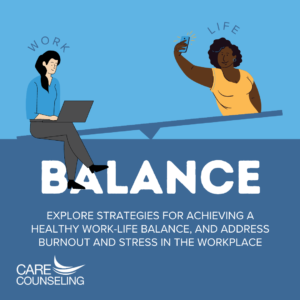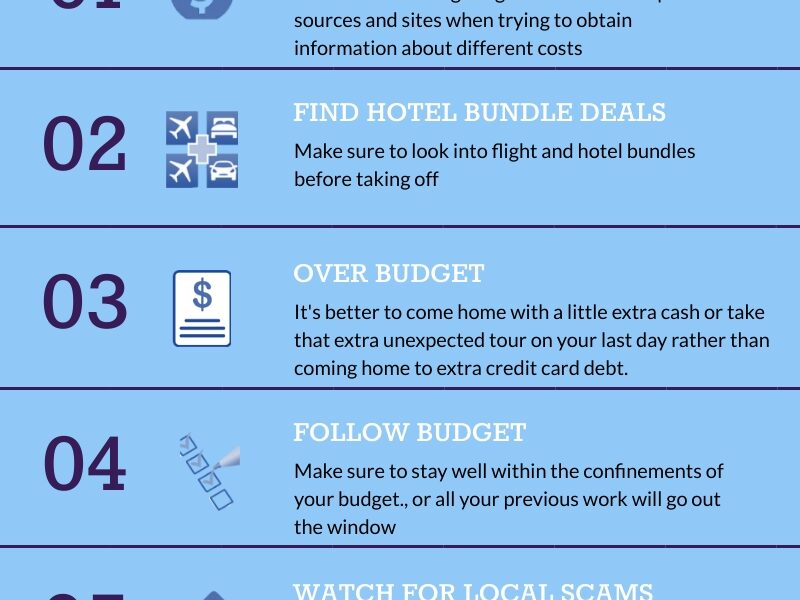Striking the Perfect Balance: Top Tips for a Healthy Work-Life Harmony
In today’s fast-paced and demanding world, finding a balance between work and life can be challenging. With deadlines to meet, projects to complete, and personal obligations to fulfill, it’s easy to feel overwhelmed and burnt out. However, maintaining a healthy work-life harmony is essential for overall well-being and productivity. In this article, we will explore some top tips for striking the perfect balance between work and life.
HTML Headings:
1. Introduction
2. The Importance of Work-Life Balance
3. Common Challenges in Achieving Work-Life Balance
4. Top Tips for a Healthy Work-Life Harmony
4.1 Set Boundaries
4.2 Prioritize Self-Care
4.3 Time Management
4.4 Disconnecting from Work
4.5 Maintain a Healthy Lifestyle
4.6 Seek Support
5. Conclusion
Introduction
In today’s fast-paced and competitive work environment, it’s easy to prioritize work over personal life. However, neglecting our personal needs can lead to burnout, stress, and a decline in overall well-being. Maintaining a healthy work-life harmony is crucial for our mental, emotional, and physical health. In this article, we will explore some top tips for achieving a balance between work and life.
The Importance of Work-Life Balance
Work-life balance refers to the ability to effectively juggle work responsibilities with personal life activities. It involves setting boundaries, prioritizing self-care, and managing time efficiently. Achieving work-life balance is essential for several reasons:
1. Mental Health: Overworking can lead to stress, anxiety, and burnout. Taking time to relax and recharge is essential for mental health and overall well-being.
2. Physical Health: Neglecting personal needs such as exercise, proper nutrition, and sleep can take a toll on physical health. Maintaining a healthy work-life harmony is essential for physical well-being.
3. Productivity: A well-rested and rejuvenated mind is more productive and efficient. Balancing work and personal life can lead to higher productivity and better job performance.
4. Relationships: Neglecting personal relationships can have a negative impact on our social connections. Spending quality time with loved ones is essential for maintaining healthy relationships.
Common Challenges in Achieving Work-Life Balance
Despite the numerous benefits of work-life balance, many individuals struggle to achieve it. Some common challenges in maintaining a healthy work-life harmony include:
1. Overworking: The pressure to meet deadlines and achieve targets often leads to overworking. Many individuals find it difficult to switch off from work and relax.
2. Lack of Boundaries: With the advent of technology, it’s easy to blur the lines between work and personal life. Constant connectivity makes it challenging to set boundaries and disconnect from work.
3. Guilt: Many individuals feel guilty when they take time off from work to focus on personal activities. This guilt can prevent them from prioritizing self-care and relaxation.
4. Poor Time Management: Inefficient time management can lead to a lack of balance between work and personal life. Many individuals struggle to prioritize tasks and allocate time effectively.
Top Tips for a Healthy Work-Life Harmony
Achieving a balance between work and life is a gradual process that requires commitment and effort. However, with the right strategies and mindset, it is possible to strike the perfect balance. Here are some top tips for maintaining a healthy work-life harmony:
Set Boundaries
Setting boundaries is essential for maintaining a healthy work-life harmony. Clearly defining work hours, personal time, and leisure activities can help create a sense of balance and structure. Here are some tips for setting boundaries:
1. Establish Work Hours: Clearly define your work hours, and stick to them as much as possible. Avoid checking emails or taking work calls outside of these hours.
2. Create a Dedicated Workspace: Designate a specific area in your home or office for work-related activities. This will help create a physical boundary between work and personal life.
3. Set Clear Expectations: Communicate your boundaries to colleagues, supervisors, and clients. Let them know when you are available and when you are off-duty.
Prioritize Self-Care
Self-care is essential for maintaining a healthy work-life harmony. Taking care of your physical, emotional, and mental well-being is crucial for overall health. Here are some tips for prioritizing self-care:
1. Practice Mindfulness: Take time to focus on the present moment and relax your mind. Mindfulness practices such as meditation, deep breathing, and yoga can help reduce stress and improve mental clarity.
2. Exercise Regularly: Physical activity is essential for overall health and well-being. Engage in regular exercise such as walking, jogging, or yoga to boost your energy levels and improve your mood.
3. Get Adequate Sleep: Prioritize sleep and ensure you get at least 7-8 hours of restful sleep each night. Lack of sleep can negatively impact your productivity and overall well-being.
Time Management
Effective time management is key to achieving a balance between work and personal life. By prioritizing tasks, setting goals, and allocating time wisely, you can make the most of your day and avoid feeling overwhelmed. Here are some tips for better time management:
1. Create a Schedule: Make a daily or weekly schedule outlining your tasks and activities. Set priorities and allocate time for important tasks first.
2. Use a Planner: Use a planner or digital calendar to keep track of your appointments, deadlines, and responsibilities. This will help you stay organized and on top of your tasks.
3. Delegate Tasks: Learn to delegate tasks that can be done by others. Delegating responsibilities can free up your time and help you focus on more important matters.
Disconnecting from Work
Disconnecting from work is essential for maintaining a healthy work-life harmony. Constant connectivity can lead to burnout and mental exhaustion. Here are some tips for disconnecting from work:
1. Turn Off Notifications: Disable work-related notifications on your phone or computer when you are off-duty. This will help you disconnect from work and focus on personal activities.
2. Set Tech-Free Zones: Designate certain areas in your home or office as tech-free zones. Avoid using electronic devices in these areas to create a sense of detachment from work.
Maintain a Healthy Lifestyle
A healthy lifestyle is essential for maintaining a balance between work and personal life. Eating a balanced diet, exercising regularly, and getting enough sleep are key components of a healthy lifestyle. Here are some tips for maintaining a healthy lifestyle:
1. Eat Well: Fuel your body with nutritious foods such as fruits, vegetables, whole grains, and lean proteins. Avoid processed foods, sugary drinks, and excessive caffeine.
2. Exercise Regularly: Engage in physical activity at least 3-4 times a week to stay fit and healthy. Choose activities that you enjoy, such as running, swimming, or dancing.
Seek Support
Seeking support from friends, family, or professional counselors can help you navigate the challenges of maintaining a healthy work-life harmony. Don’t be afraid to reach out for help when needed. Here are some tips for seeking support:
1. Talk to Loved Ones: Share your feelings and concerns with trusted friends or family members. They can provide you with emotional support and helpful advice.
2. Consult a Professional: If you are struggling to achieve work-life balance, consider seeking help from a professional counselor or therapist. They can help you develop coping strategies and overcome challenges.
Conclusion
Maintaining a healthy work-life harmony is essential for overall well-being and productivity. By setting boundaries, prioritizing self-care, managing time effectively, disconnecting from work, maintaining a healthy lifestyle, and seeking support when needed, you can achieve a balance between work and personal life. Remember that work is important, but so is taking care of yourself and enjoying life outside of work. Striking the perfect balance between work and life is a gradual process that requires commitment and effort, but the rewards are well worth it in the long run.







Leave a Comment